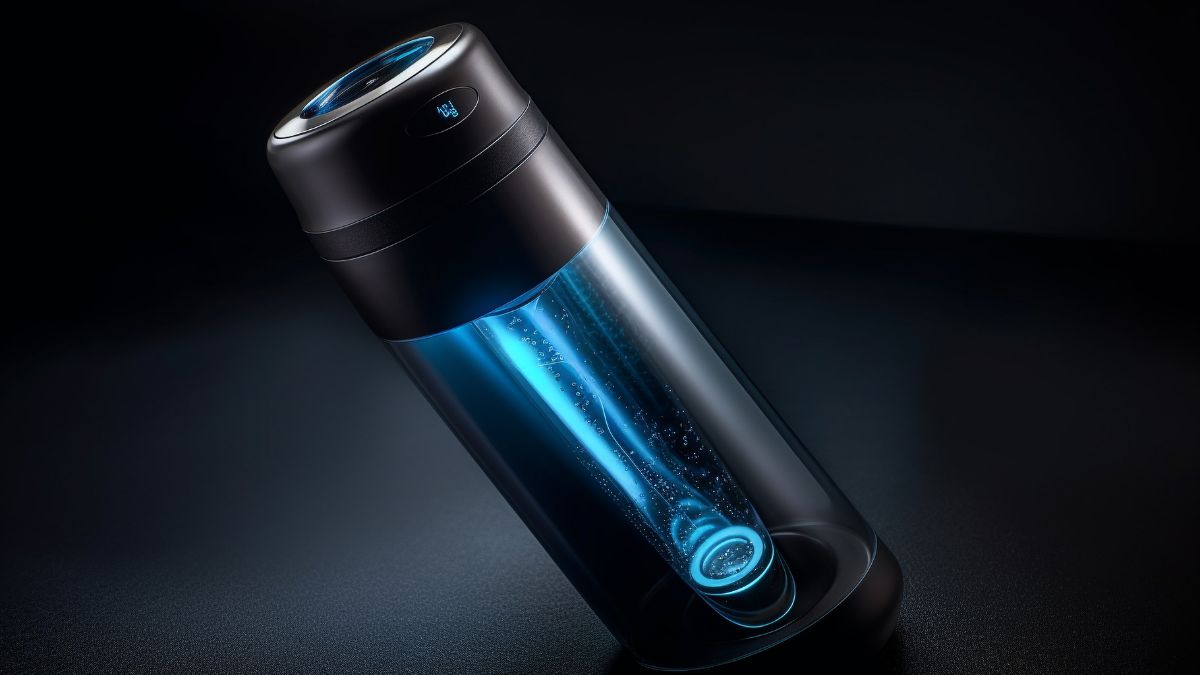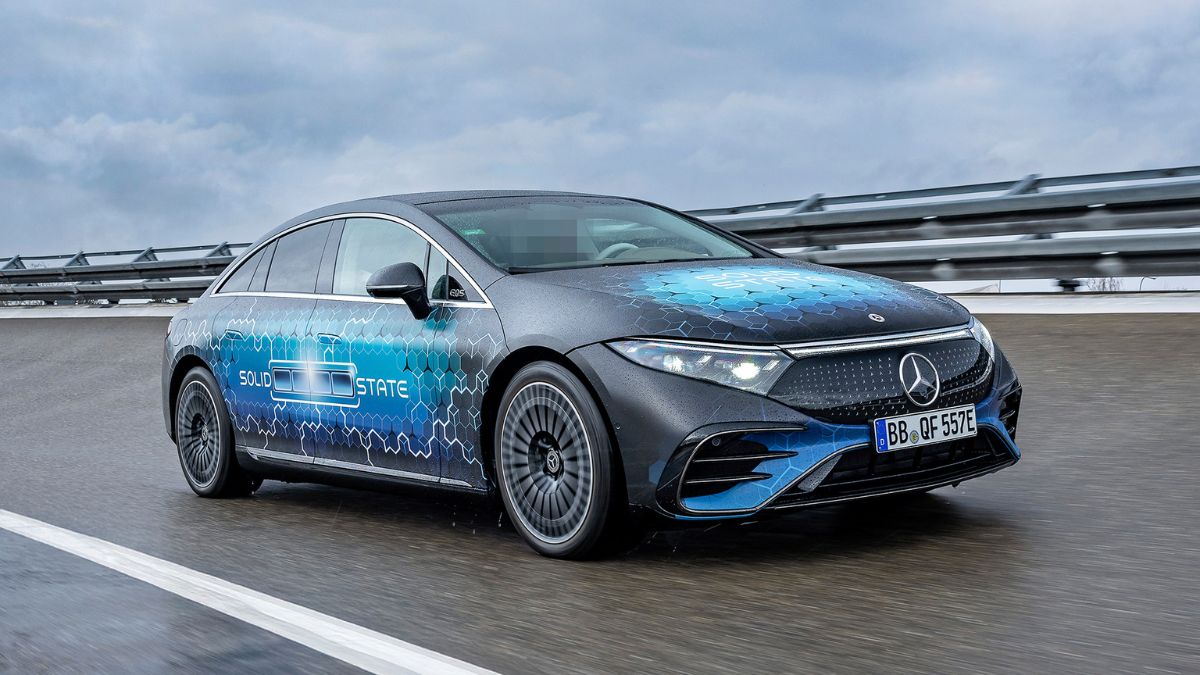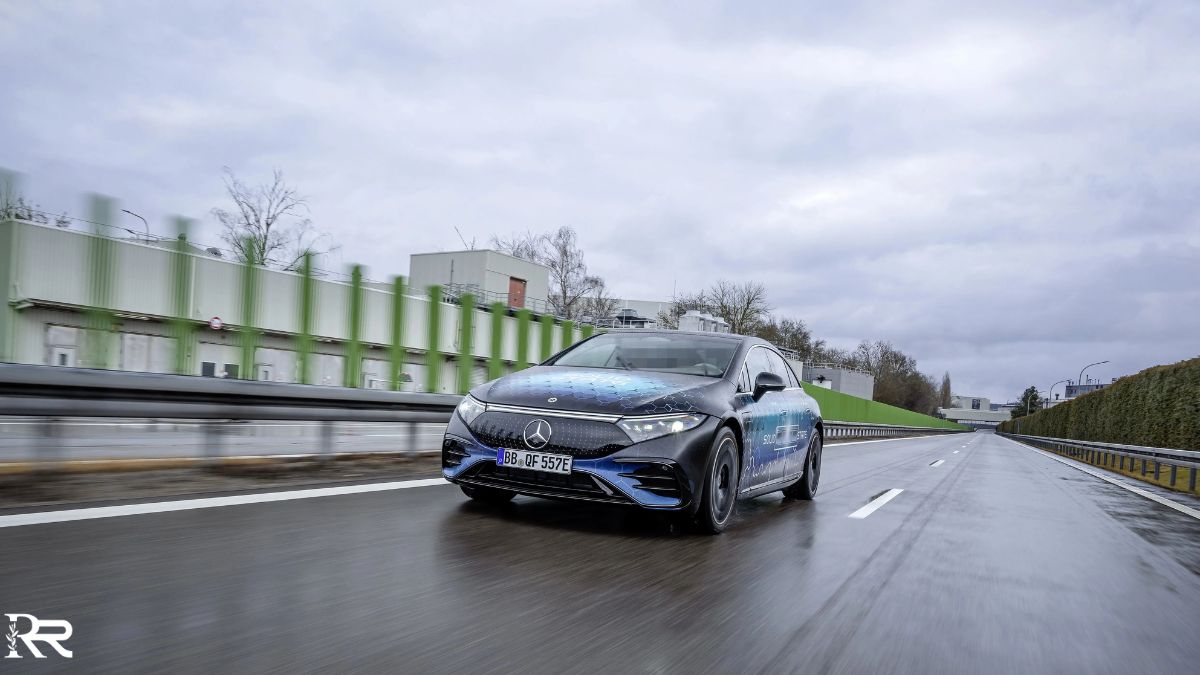Physical Address
304 North Cardinal St.
Dorchester Center, MA 02124
Physical Address
304 North Cardinal St.
Dorchester Center, MA 02124

September 2025 – Battery technology is moving faster than ever. From safer portable chargers you can toss into a backpack to high-performance electric cars running on lithium-metal solid-state cells, the industry is finally making strides toward replacing today’s risky and short-lived lithium-ion batteries.
This year, two very different demonstrations have highlighted the direction of next-gen battery technology. One took place in the palm of a hand—a hammer puncture test on the KUXIU S2 solid-state power bank. The other involved one of the world’s most recognized luxury automakers, Mercedes-Benz, hitting the road with a prototype EQS fitted with an advanced solid-state battery system. Together, these developments show how far battery technology has come—and where it may be heading next.
Lithium-ion batteries have powered our phones, laptops, power banks, and electric cars for decades. They’ve enabled portable electronics and helped accelerate EV adoption thanks to their relatively high energy density. But as widely reported, they also come with risks.
These risks are not just theoretical. In July 2025, a Delta Air Lines flight was forced to make an emergency landing in Florida after a passenger’s portable battery pack caught fire mid-flight. Incidents like these remind travelers and regulators that battery safety is not a minor concern—it’s an urgent one.
This is where solid-state batteries step in. By replacing flammable liquid electrolytes with solid or gel-based electrolytes, these batteries dramatically improve thermal stability, reduce the risk of fire, and often last longer than traditional lithium-ion packs.
To prove just how much safer solid-state technology can be, portable charger maker KUXIU sent out its new S2 solid-state power bank for real-world testing. The demonstration was simple but effective: strike the power bank with a hammer and puncture it straight through the middle.
If this were a typical lithium-ion power bank, such a puncture could have resulted in swelling, smoke, or even flames. Instead, the S2 remained stable. No fire, no sparks—just a working 5,000mAh portable charger.
Why it Matters
In a market where consumers increasingly carry portable chargers to keep devices alive on the go, the KUXIU S2 shows how next-gen technologies can solve long-standing safety concerns.

While KUXIU demonstrates consumer-level safety, Mercedes-Benz is tackling the challenge at the other end of the spectrum—scaling solid-state technology for electric vehicles.
In February 2025, Mercedes-Benz engineers, working with Factorial Energy, began road tests of an EQS prototype equipped with a lithium-metal solid-state battery. This milestone followed years of lab and bench testing, marking the first time such a battery system was integrated into a production-level vehicle platform.
Key Details of the Mercedes Solid-State Project
Markus Schäfer, Member of the Board of Management at Mercedes-Benz Group AG, emphasized that this breakthrough represents “a historic achievement in electric mobility,” highlighting the company’s commitment to innovation and sustainability.

At the core of both the KUXIU S2 and Mercedes-Benz EQS prototypes is the same principle: replace the liquid electrolyte with a solid medium.
Benefits
Challenges
Solid-state isn’t the only game in town. Other next-gen technologies are also making headlines:
Each approach has strengths and weaknesses, but the industry consensus is clear: lithium-ion’s dominance is ending.
Of all the tests conducted to prove battery safety, the hammer puncture test resonates because it’s visceral. Consumers don’t need to understand Wh/kg or gravimetric energy density to recognize the difference between a battery bursting into flames and one that quietly keeps working.
For travelers, parents, and everyday users, it’s proof that next-gen battery technology is about more than performance—it’s about peace of mind.
The United States has a lot at stake in the battery race. EV adoption is accelerating, with federal incentives pushing manufacturers toward cleaner technologies. At the same time, airline safety concerns and consumer electronics demand make safer batteries a priority.
If solid-state batteries deliver on their promise:
From the KUXIU S2 hammer puncture test to the Mercedes solid-state EQS road trials, 2025 is shaping up as a landmark year for battery technology. What once seemed like a distant vision—safe, long-lasting, high-performance batteries—is now inching closer to reality.
Lithium-ion may not disappear overnight, but its weaknesses are becoming too costly to ignore. Whether it’s a power bank that won’t ignite in your bag or a luxury sedan that can drive 620 miles without charging, next-gen battery technology is beginning to deliver where it matters most: safety, reliability, and performance.
As companies from startups to global automakers push forward, the message is clear. The age of lithium-ion is ending, and the era of solid-state and other advanced chemistries has begun.
Founder and Chief Analyst at Reflect Relay
I serve as a bridge between breaking news and strategic insight. With a background in Business, Tech, News and Lifestyle, I write about the future of business and technology — not the usual way things happen today, but the new things that will shape those arenas. And the clarity to go forth is my job.”
Leading the future of data intelligence. From AI-powered insights to actionable business dashboards, we turn information into your competitive advantage.
OUR PROMISE TO YOU
✓ Clarity over clickbait.
✓ Depth over speed.
✓ Context over noise.
Thank you for reading.
© 2025 Reflect Relay. All rights reserved.
We use cookies to improve your experience on our site. By using our site, you consent to cookies.
Websites store cookies to enhance functionality and personalise your experience. You can manage your preferences, but blocking some cookies may impact site performance and services.
Essential cookies enable basic functions and are necessary for the proper function of the website.
These cookies are needed for adding comments on this website.
Statistics cookies collect information anonymously. This information helps us understand how visitors use our website.
Google Analytics is a powerful tool that tracks and analyzes website traffic for informed marketing decisions.
Service URL: policies.google.com
You can find more information in our Privacy Policy and .




